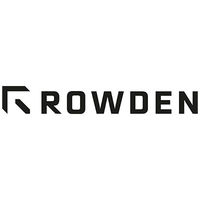
How to Write a Graduate Job CV (With Template)
Whether you’ve already thrown your grad cap in the air or are about to, one thing remains: securing that all-important grad job.
A graduate role will be your first job out of uni, your chance to take everything you’ve learned during your degree into the real world. Tackling the graduate CV is your first step towards securing that role.
So we’ve put together some tips and examples, plus a downloadable template, to help you craft the best graduate CV in the world.

What goes in a graduate CV?
Chances are, you’ve already written a CV if you managed to secure a placement year or summer internship during your studies. Great. That’ll help you a lot.
There’s not much difference in what each CV will do. However, it’s super important to know what you should always include.
A well-written graduate CV will include all the relevant information and hit industry keywords, all while being concise enough for an employer to understand who you are professionally in a matter of seconds.
You'll then be ready to apply for a graduate job.
Download Grad CV TemplateContact details
Every good CV starts with a name and contact details. You’ll need to include your full name, email address and telephone number.
There’s no real need to put your full address on a CV, especially if it’s going out to multiple employers. If some jobs you apply for require you to be within a certain distance, then there’s no problem adding the area you live in. So if a graduate job you apply for is based in Sheffield and you live in Doncaster, put that in.
Personal Statement
This will be the first thing an employer reads when they scan your CV. So it needs to be good. Pulitzer Prize good.
Your personal statement is a short introduction to who you are professionally and should include your skills and your career ambitions. It’s always a good idea to include your confirmed grade or predicted grade.
For example, ‘A recent graduate with a [grade] in [subject] from [University] with experience in…’
Your personal statement doesn’t need to be any longer than a short paragraph, think around 150 words.
Education
Graduate CVs are a type of chronological CV that aims to list all your experience so far, with the recent date of completion.
Next up is your educational history. Here you need to include everything you’ve done academically. So start with your undergraduate course and go backwards. You’ll need to include the following information;
Name of university
Start and end dates (months and years are fine)
Course name
Grade
For example:
City, University of London (September 2022 - August 2023)
BA Journalism - 2:1
If you want to include some relevant modules, that’s fine too. Just be wary of space.
Written the perfect CV? Get your cover letter sorted, too. Click below to find out more.
How to write a Graduate Cover LetterGraduate CV Extras
Not all graduate CVs are the same, and some schemes might need something extra. This especially rings true if you’re looking to secure a job in the creative sector.
Portfolio links
This should be placed very early on in your CV. Whether that’s part of your contact details or a line elsewhere.
Your portfolio is an extension of your CV and is the best way that an employer is going to see your work, especially if you can’t get a physical one to them right away. There are two ways to host your portfolio.
Online portfolios. There are some websites you can use to create your online portfolio. Canva and Adobe are FREE to use. There are loads of options for journalists, too
Social media. Instagram is an invaluable resource for portfolio work. It’s free, and all it takes is a few taps and voila, a portfolio. Tumblr is another super resource.
Key Skills
There are a few ways to do this. You can always include your key skills as their own section filled to the brim with all the hard and soft skills you’ve gained over your course. Or, make sure you litter your previous employment with these skills.
Technology Summary
Depending on what you’re applying for, this section is your opportunity to show off all the programs you’re skilled at using. Whether that’s Microsoft Office or Adobe Suite, you can include those, plus the level you’re skilled at.
Top tips for writing a Graduate CV
Here are some ways you can make sure your graduate CV shines above the rest.
Keep your CV to one page. Your CV should be able to show off your best assets without becoming a novel. List all your important and most impressive experiences.
Choose a simple layout. Make sure sections have headers and that you’re using bullet points to outline bits like key skills and job responsibilities.
Always look at the job description. You should tailor your graduate CV to the role you’re applying for. Having the job description in front of you helps you to remember to match the skills to the ones an employer is looking for.
Proofread your CV. It won’t look good if your CV is littered with speling mistakez. If it helps, use spellcheck or a program like Grammarly to avoid your CV getting e-shredded.
Include your LinkedIn profile. If you don’t have one, make one. Yesterday. LinkedIn is a useful tool to use when it comes to professional self-branding. Also, make sure your CV and LinkedIn profile match.

I'm Melchi, Senior Content Writer at Higherin and I've been writing for about 100 years now. I first joined Higherin back in 2022 after a six-month internship as a journalist elsewhere, so I know what it's like. Job hunting as a student can be a lot, so I'm here to make sure you have the best info you need when it comes to looking for work experience.





















